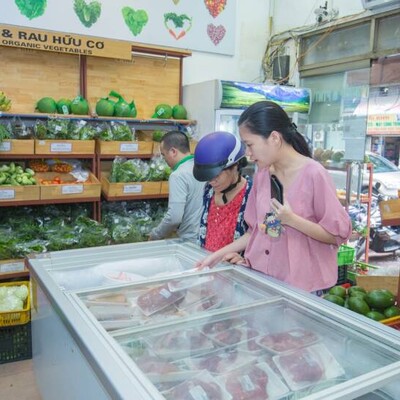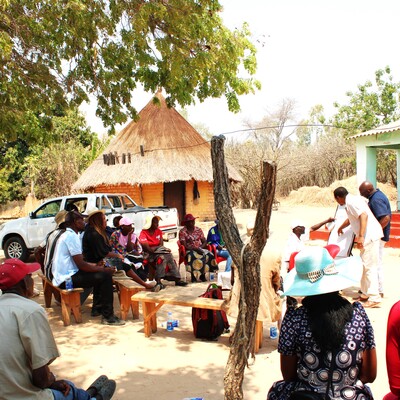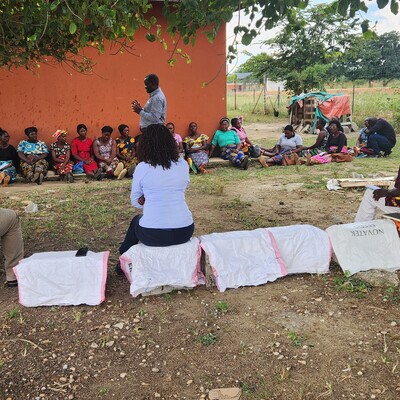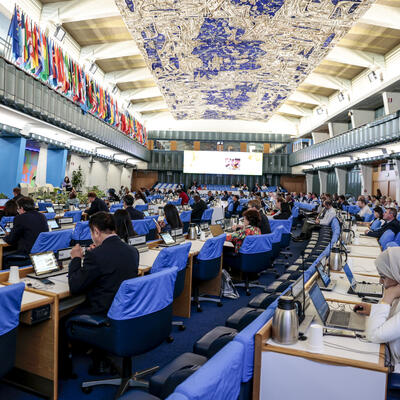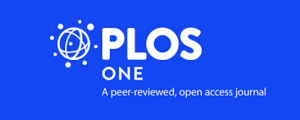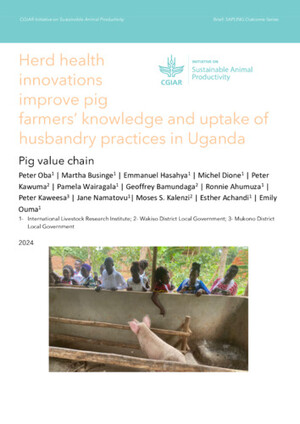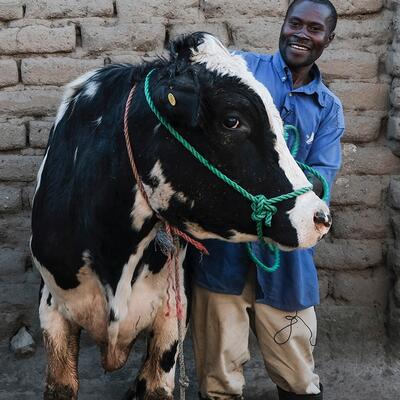
Sustainable livestock futures—BMZ, GIZ and ILRI at the Global Forum for Food and Agriculture this week

For several days this week (18–20 Jan 2018), several scientific directors and staff of the International Livestock Research Institute (ILRI)—Jimmy Smith, Shirley Tarawali, Dieter Schillinger, Lutz Merbold and Kristina Roesel—will be participating with several ILRI partners in the Global Forum for Food and Agriculture (GFFA), held in Berlin, Germany.
This annual German three-day international conference focuses on the future of the global agri-food industry. Now in its tenth year, the GFFA in 2018 is focusing on Shaping the Future of Livestock—Sustainably, Responsibly, Efficiently.
GFFA is organized by the Federal Ministry of Food and Agriculture in cooperation with the Berlin Senate, Messe Berlin GmbH and the GFFA Berlin e.V. This is the tenth year of GFFA, which takes place at the start of International Green Week (19–28 Jan 2018), a large Expo-like international exhibition of the food, agriculture and gardening industries. GFFA also includes the Berlin Agriculture Ministers’ Conference, the world’s largest conference of agriculture ministers. A final communiqué of the summit will formulate the common position of the agriculture ministers and will be fed into international discussions on agricultural policy.
ILRI’s involvement in GFFA this year includes co-hosting an expert panel on 19 Jan 2018 titled Sustainable solutions for the livestock sector: The time is ripe!. The other hosts are the Federal Ministry of Economic Cooperation and Development (BMZ), Deutsche Gesellschaft für Internationale Zusammenarbeit (GIZ), the Global Agenda for Sustainable Livestock (GASL) and the Livestock Global Alliance (LGA). The panel will be moderated by ILRI’s Shirley Tarawali.

Detail of a bull figure from the reconstructed Ishtar Gate
to ancient Babylon, Pergamon Museum, Berlin.
Sustainable solutions for the livestock sector:
The time is ripe!
Friday 19 January 2018
1000–1200 hrs
CityCube Level 3 Room M2 / M3
Berlin. Germany
Experts in nutritional well-being, economic development and environmental protection from both developed and developing countries will debate the roles livestock play, and could play, in ensuring sustainable food and nutritional security for all the world’s peoples. The event will conclude with a panel and audience discussion to identify the highest priority actions and solutions for sustainable livestock futures supporting human and environmental well-being.
Key messages
The global livestock sector takes diverse forms—from families in southeast Asia keeping a flock of chickens or pigs in their backyards, to nomadic herders walking their cattle, sheep and goats across vast drylands to new pastures, to the highly intensive poultry, pork and beef production systems common in industrial and emerging countries. Each of these production systems requires its own solutions to become sustainable and equitable as well as profitable. We must find ways to better communicate this diversity. We must ensure that the negative views of the livestock sector in developed countries do not hamper the financing and sustainable development of the livestock sector in poor countries.
Including very modest amounts of milk, meat and eggs in the diets of the world’s most vulnerable people improves their health as well as their nutritional well-being, and providing these animal-source foods remains essential for children of the developing world in the first 1,000 days of their lives, without which they are set to become physically and mentally stunted for life.
Many big and as yet unexploited opportunities exist to significantly improve the efficiency of livestock production in developing countries, thereby both reducing livestock greenhouse gas emissions and enhancing the livelihoods of more than three-quarters of a billion people living in poverty today.
Program
Welcome, opening remarks
Jimmy Smith, director general of the International Livestock Research Institute (ILRI), Kenya
Opening speech
Stefan Schmitz, deputy director-general and commissioner for the One World—No Hunger initiative, Federal Ministry for Economic Cooperation and Development (BMZ), Germany
Overview of livestock contributions to the sustainable development goals
Fritz Schneider, chair of the Global Agenda for Sustainable Livestock
Presentations and discussion
Facilitator
Shirley Tarawali, assistant director general of the International Livestock Research Institute (ILRI), Kenya
Presentations
Climate adaptation and mitigation in animal production
Robin Mbae, deputy director of livestock production (climate change) at the Ministry of Agriculture, Livestock and Fisheries, Kenya
Livestock and human nutrition
Lora Iannotti, associate dean for public health and associate professor at the Brown School at Washington University, in St Louis, USA
Livestock and household-level economic development
Emma Naluyima, pig farmer and chair of Uganda’s National Multi-stakeholder Piggery Value Chain Platform and an Aspen New Voices Fellow
Discussion
Adrian Aebi, assistant director of Switzerland’s Federal Office for Agriculture, opens the discussion
Open discussion
Questions/comments
Closing statement
Jimmy Smith, director general of the International Livestock Research Institute, Kenya
Speakers
Jimmy Smith, a Canadian, is director general of the International Livestock Research Institute, a position he assumed in October 2011. Smith has worked for the World Bank and the Canadian International Development Agency. Still earlier in his career, Smith worked at ILRI and its predecessor, the International Livestock Centre for Africa, where he served as the institute’s regional representative for West Africa and subsequently managed the ILRI-led Systemwide Livestock Programme of CGIAR. He is a graduate of the University of Illinois at Urban- Champaign, USA, where he completed a PhD in animal sciences. He is widely published, with more than 100 publications, including papers in refereed journals, book chapters, policy papers and edited proceedings.
Stefan Schmitz is deputy director-general and commissioner for the One World—No Hunger initiative of the Federal Ministry for Economic Cooperation and Development (BMZ), Germany. For the last five years, he headed the rural development, agriculture and food security unit at the BMZ. Before that, he worked as senior advisor to the Secretariat of the Organisation for Economic Cooperation and Development (OECD) in Paris, coordinated the German bilateral cooperation program with South Africa and Namibia and was deputy head of the infrastructure division at the BMZ. He graduated from Bonn University in geography and mathematics and received a PhD in geosciences from the Free University of Berlin in 2000.
Fritz Schneider is chair of the Global Agenda for Sustainable Livestock. He has been active in the Livestock Environment and Development Initiative (LEAD) since 1997 and has been co-editor of the publication Livestock in a Changing Landscape (2010). He holds a master’s degree in livestock science. He is affiliated with the Bern University of Applied Science, where he was professor of livestock systems, vice director and head of agriculture (1993–2015).
Robin Mbae is director of livestock production at the Ministry of Agriculture, Livestock and Fisheries, Kenya. He currently leads climate change work in the State Department of Livestock. Mbae has worked with the Kenya government for around 30 years in various capacities, including being director of the Apiculture Institute for more than ten years before initiating the climate change unit in 2012. He has been a key player in development of Kenya’s climate change policy, act, response strategy, action plan and nationally determined contribution. He also has been involved in development of Kenya’s Climate-Smart Agriculture Strategy and is currently working on the Climate-Smart Agriculture Framework Programme and Kenya’s Nationally Appropriate Mitigation Action (NAMA) for dairying. He holds a BSc in agriculture and an MBA from Nairobi and Kenyatta universities, respectively.
Lora Iannotti is associate dean for public health and associate professor at the Brown School at Washington University, in St Louis, USA. Iannotti has expertise in maternal and young child nutrition and nutrient deficiencies related to poverty and infectious diseases. Her research focuses on epidemiological and intervention studies to reduce stunting and anaemia in low-resource populations. Iannotti leads projects in Haiti, Ecuador and East Africa, where she collaborates with local partners to test innovative, trans-disciplinary solutions using sustainable animal-source foods and small livestock development. Lannotti received her doctorate from the Johns Hopkins University Bloomberg School of Public Health and a Master of Arts degree in foreign affairs from the University of Virginia. Before pursuing her PhD, she worked for more than ten years with United Nations agencies and non-governmental organizations on nutrition and food security programming and policy.
Emma Naluyima is a smallholder Uganda farmer and a private veterinarian focusing on clinical medicine and herd health. She has previously worked for Uganda’s National Animal Genetic Resources Centre and Data Bank and served as an officer in charge of a livestock environmental station in Entebbe. She has also worked for Ugandan President Yoweri Museveni, improving the genetics of his personal dairy herd through artificial insemination, and served as chair of Red Cross Mbarara. She holds a BSc in veterinary medicine and a master’s of health services research from Makerere University, in Kampala, Uganda.
Adrian Aebi is assistant director of the Federal Office for Agriculture, in Switzerland. He is head of the International Affairs Unit. Aebi is an agronomist of the Swiss Federal Institute of Technology ETH, specializing in agricultural economics, and has a MBA. He was formerly manager of the marketing and sales unit of Teva Pharma AG. Afterwards, he was CEO of the S.A.M. Group AG and managing director ad interim of the Emmental Show Dairy before taking up his present position at the Federal Office for Agriculture.
Shirley Tarawali is assistant director general at the International Livestock Research Institute (ILRI) based in Nairobi, Kenya. Her responsibilities span strategy, planning, partnerships, communications and knowledge management as well as institutional management, decision-making and representation. She serves as secretary to the ILRI Board of Trustees. Before this, Tarawali led an ILRI research theme focusing on livestock-environment, animal nutrition and natural resource management across sub-Saharan Africa and Asia. Tarawali has more than 30 years’ experience implementing and leading research for development in Africa and Asia. She holds a PhD in plant science from the University of London, UK
See also:
Thinking ‘beyond the farm’—On Germany’s longstanding commitment to agricultural research for development, ILRI Clippings blog, 30 Nov 2017.
BfR expands coop with ILRI and starts pyrrolizidine alkaloids project, Food Quality News, 21 May 2017.
Federal Institute for Risk Assessment (BfR) expands cooperation with Africa to improve food safety, Bundesinstitut für Risikobewertung press release, 12 May 2017.
Tropentag workshop: Empowering livestock and fish smallholders through multi-stakeholder platforms and value chains, CGIAR Research Program on Livestock and Fish blog, 5 Sep 2016.
High-level German delegation visits ILRI for updates on CGIAR livestock and sweet potato research, ILRI News blog, 19 Nov 2015.
Safe Food, Fair Food at Tropentag 2014, ILRI Safe Food Fair Food blog, 19 Sep 2014.
Livestock options to meet development goals: ILRI side event at Tropentag Conference in Prague, ILRI News blog, 17 Sep 2014.
ILRI@tropentag 2014: Livestock-based options for sustainable food and nutritional security and healthy lives, ILRI News blog, 16 Sep 2014.







